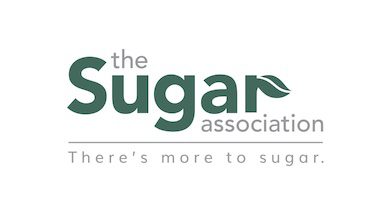

April 9, 2024 (Washington, DC) – While welcoming the dietary balance and flexibility reflected in the new Special Supplemental Nutrition Program for Women, Infants and Children (WIC) rule announced today (Tuesday), the Sugar Association cautioned that added sugars limited on individual products could limit access to nutrient-dense foods that are associated with better overall diet quality, as well as further incentivize massively increased use of artificial sweeteners.
Sugar Association President and CEO Courtney Gaine, RD, PhD, commented:
“The Sugar Association supports the DGA recommendation to limit added sugars to ten percent of total calories in a total dietary pattern. However, added sugars limits on individual foods are not consistent with that approach and contradict scientific evidence showing that grains and flavored dairy sweetened with sugar are not associated with adiposity and, in fact, are associated with improved nutrient adequacy.
Narrow focus on added sugars consumption alone has failed to address obesity in the United States. Since its peak in 1999, added sugars consumption has decreased by 18 percent, while child obesity increased by 44 percent and adult obesity by 37 percent over the same time. Americans also continue to have overall diets scored as poor in the Healthy Eating Index.
Going forward, the U.S. Department of Agriculture should ensure adequate intake of nutrition dense foods and limit the use of low- and no- calorie sweeteners, which are likely to be further incentivized by this rule.”
The World Health Organization, the American Academy of Pediatrics, and other health experts have repeatedly raised concerns regarding the consumption of artificial sweeteners, particularly by children. Yet, added sugars reduction initiatives have incentivized reformulation and seen a 300% growth in the prevalence of low- and no-calorie sweeteners over the last 5 years.
Consumer polling shows that while many many consumers think it is important to reduce added sugars intake, only 14% of consumers want to do so using low- and no-calorie sweeteners. 73% of parents want to know the amount of low- and no-calorie sweeteners used in their children’s food, but this information is not required to be disclosed, including in foods eligible for WIC purchases.
###
The Sugar Association, founded in 1943, is the scientific voice of the U.S. sugar industry. The association is committed to making a difference by continuously supporting scientific research and sharing its knowledge that there’s more to sugar by increasing consumer understanding of and confidence in the role that real sugar plays in a nutritious, balanced and enjoyable diet. The Sugar Association represents nearly 12,000 beet and cane sugar growers, as well as processors and refiners of sugar. The U.S. sugar industry generates 142,000 jobs in 22 states and contributes $20 billion to the economy annually. For more information, visit www.sugar.org, follow us on Twitter and Instagram, and connect with us on Facebook.

January 14, 2025
January 14, 2025 (Washington, D.C.) – The following reaction statement is attributable to Sugar Association President and CEO Courtney Gaine, PhD, RD: “The Sugar Association supports transparency, but this draft label offers only the illusion of transparency – it entirely leaves out total calories and the use of industrial additives like artificial sweeteners. In fact, […]

December 19, 2024
December 19, 2024 (Washington, D.C.) – The following reaction statement is attributable to Sugar Association President and CEO Courtney Gaine, PhD, RD: “The Sugar Association supports the Dietary Guidelines recommendation to limit added sugars to 10% of total calories, but the new “healthy” definition goes well beyond that recommendation and arbitrarily excludes many foods containing […]

December 10, 2024
December 10, 2024 (Washington, D.C.) – Americans feel more confident about managing their sugar intake when they know the Dietary Guidelines recommendation to limit added sugars to less than 10% of their total calories, and the Sugar Association welcomes the Dietary Guidelines Advisory Committee (DGAC) reaffirmation of that guideline. The added sugars guideline is a […]
© 2025 The Sugar Association, Inc. All rights reserved.
Get Social with #MoreToSugar